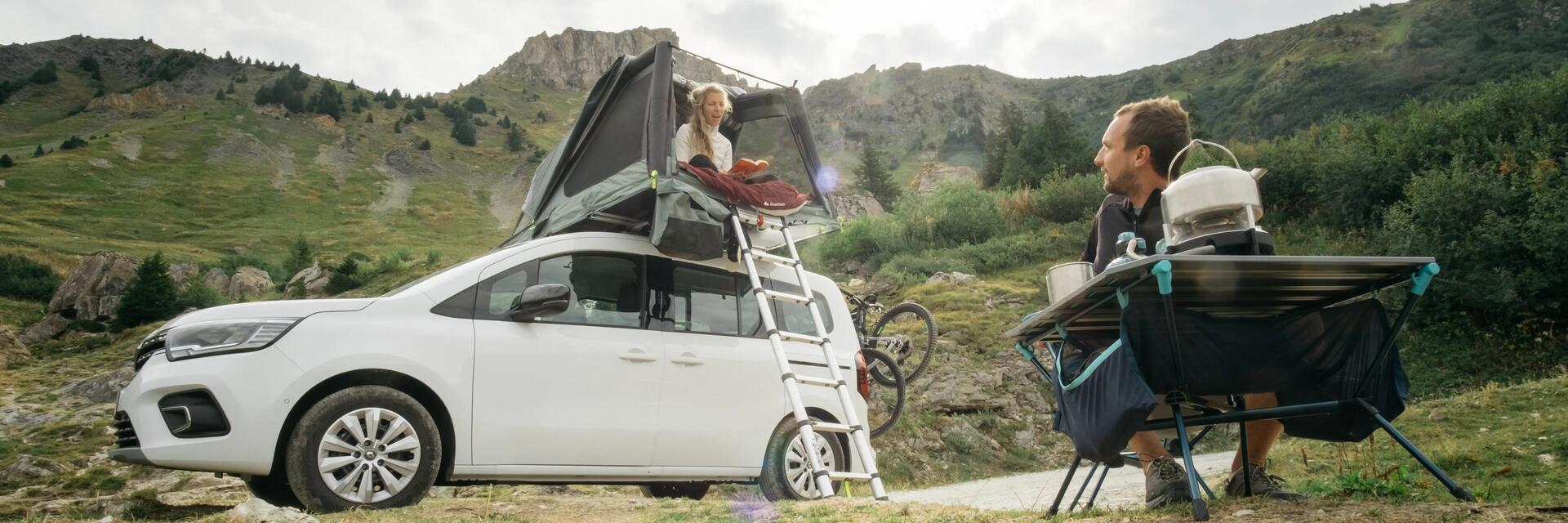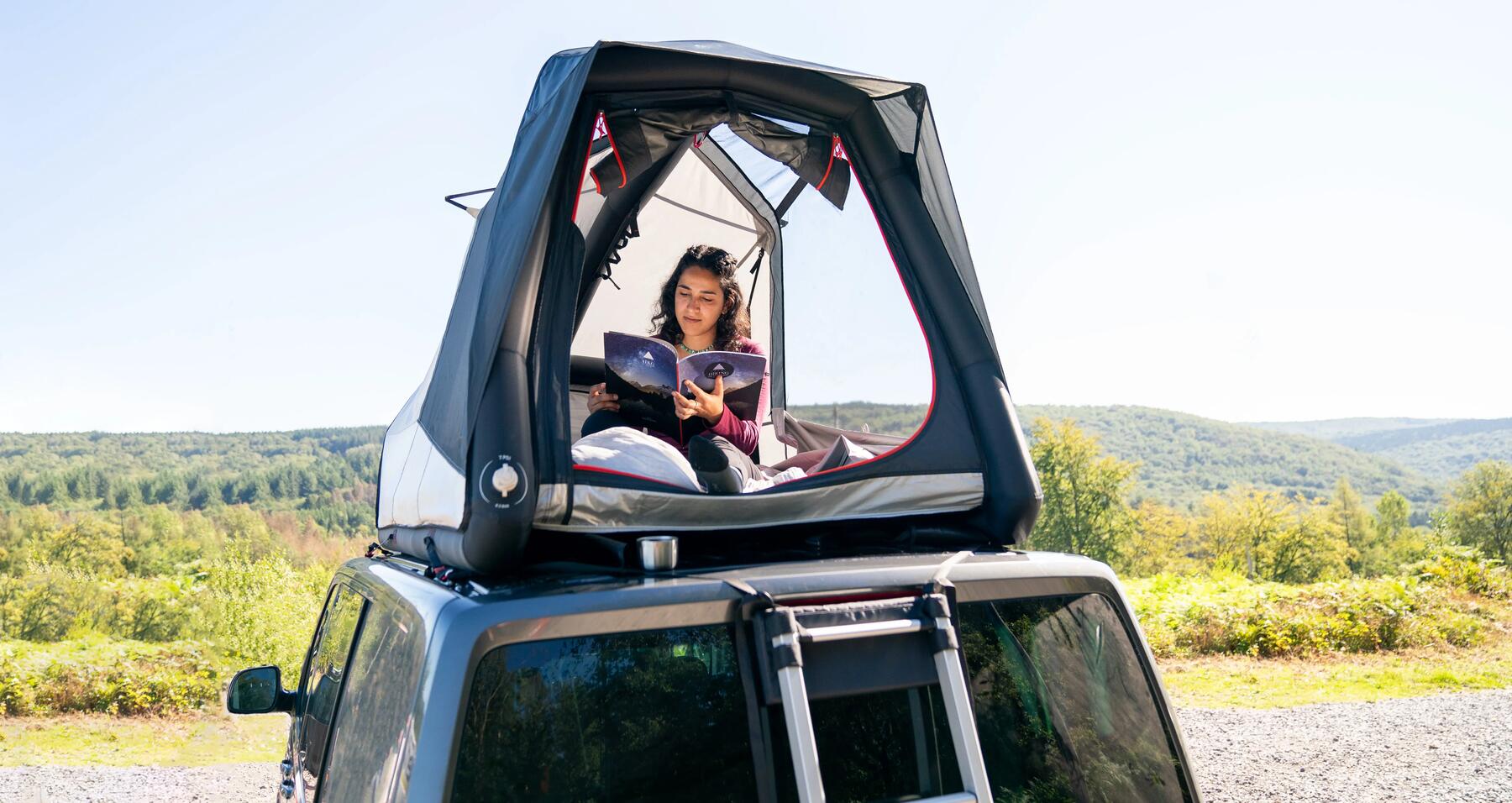6 - Tent, rooftop tent or van: what kind of trip are you after?
Over and above the practical criteria, your choice of travelling home will, for the most part, be based on what you’re looking for. Relaxation, minimalism, roaming, novelty...? Here are our tips for making the best choice based on your motivating factors, to ensure you get the experience that’ll send you straight to heaven!
1. You want comfort
... A van is the most comfortable solution. You can even add a suitable rooftop tent to it, to gain space inside the van and take along even more gear: bikes, kayaks, stand-up paddle boards, etc. Most of the models are fitted out these days: kitchenette, storage, curtains, etc. Grand luxury! The car rooftop tent is also a good idea, as it guarantees a flat ground surface, without stones and those little earth-dwelling insects that have a knack of crawling into your sleeping bag with you. "Most of the models offer a real mattress, and that’s just what you want for comfort. “You can sleep just like at home!” (Maguy, Quechua Press relations Manager and certified roamer🥾)
2. Your priority is adventure and immersion in nature.
The tent, in its standard or "rooftop" form, is the option that takes you as close to nature as possible during your trip. The standard tent is still a safe bet and a basic for the camping experience. The rooftop tent is a good variation on this theme, with an undeniably fun side. It’s a bit like the modern version of a treehouse! It allows you to gain height, according to Jean, a seasoned camper⛺. “By being raised on the roof of the vehicle, you can see the landscapes better and you can almost touch the stars, it’s magical!”. Another advantage is that you can roam and set up camp in unusual places, that are sometimes inaccessible to vans and pedestrians, as Maguy says: “Going on an adventure with a rooftop tent is pure freedom”.
3. You want
Camper novelty from one end of France to the other, and beyond, of course! But even if you adore this, would you like a bit of novelty, all while keeping the camping spirit? We advise you to test the rooftop tent experience, a good compromise between the traditional tent and the van, which will add a touch of originality to your adventure!





